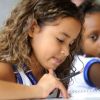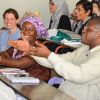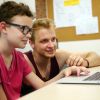Education for all
Hundreds of millions of people around the world have no access to education. German initiatives hope to change this.
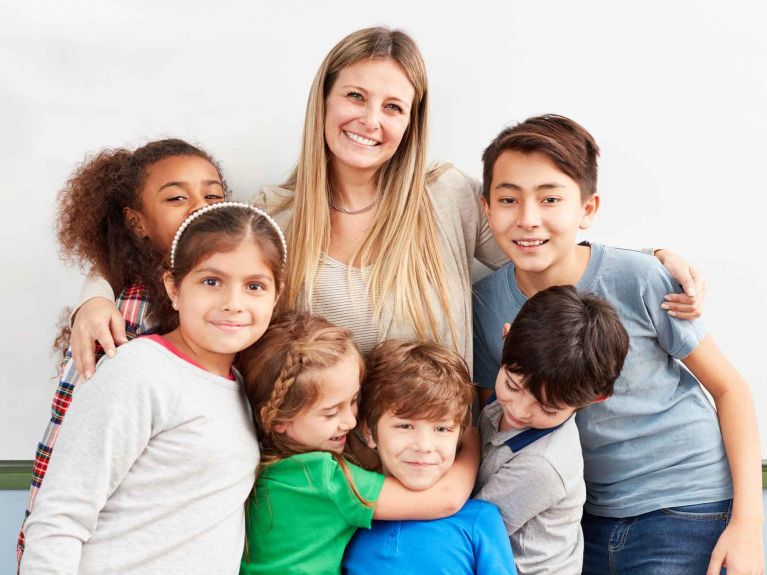
It’s an ambitious goal: to ensure that everyone in the world has access to education by 2030. Access to education that excludes nobody, in which everyone has equal opportunities, and that is of high quality.
As yet, the global community that laid down this target in its Sustainable Development Agenda in 2015 is still a long way from honouring its commitment. This is evident from the Global Education Monitoring Report published at the end of July 2023 by Unesco. It revealed that some 250 million children, adolescents and youth did not attend school in 2023. There is some good news at least: the number has declined since the turn of the millennium, when it still exceeded 350 million.
Marginalised on many levels
In addition to these young people, the report explains that millions of others are also marginalised within the education system on grounds of their ethnicity, identity or disability; they are particularly impacted by the consequences of the Covid-19 pandemic. Poverty remains the greatest obstacle to educational success worldwide.
“Poverty affects attendance, completion and learning opportunities”, states the Global Education Monitoring Report. Despite progress in reducing extreme poverty, especially in Asia, it affects one in ten adults and one in five children – and even one in two children in sub-Saharan Africa.
School for all
As Walter Hirche, a member of the Board of the German Commission for Unesco, explains, a lot has already been achieved in Germany. “But the majority of children and young people with special educational needs still learn separately rather than attending lessons at ordinary schools”, says Hirche. “This is something we must change.”
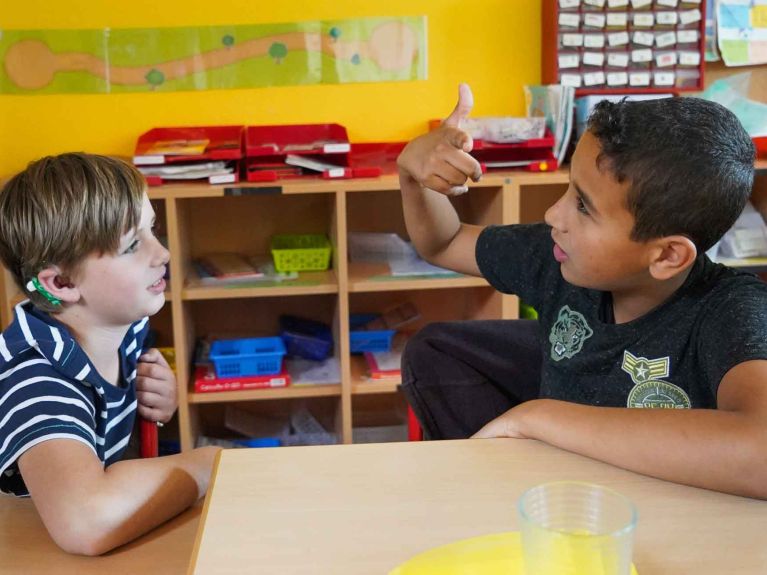
In Germany, Marie Kahle Comprehensive School in the city of Bonn in North Rhine-Westphalia is an excellent example of how to increase inclusion in education. Every morning at 9.15, when the second lesson of the day begins, the school’s hallways are abuzz with excitement as pupils are allowed to pick which classroom and type of lesson they now wish to attend. English or maths? With friend A or friend B? Given by teacher Y or teacher Z? The 900 or so students at the school decide for themselves.
They follow what is known as the Dalton Plan, a concept that allows them to work at their own pace and choose classroom, subject and learning partners themselves. The school implements this method for two learning modules per day. Alongside conventional lessons, the children can then organise their time as they wish in order to complete assignments autonomously. The advantage is that the pupils work independently, are given individual tuition and can also withdraw and take some time out if they so choose.
The Dalton concept for more independent learning
“Within the Dalton concept we intentionally allow pupils to decide not to work. We even have a room especially for the purpose, the Interludium. We have found that it is easier to say yes to something if one is also permitted to say no. This is something we also observe in ourselves,” says Sabine Kreutzer, the head teacher at Marie Kahle Comprehensive School.
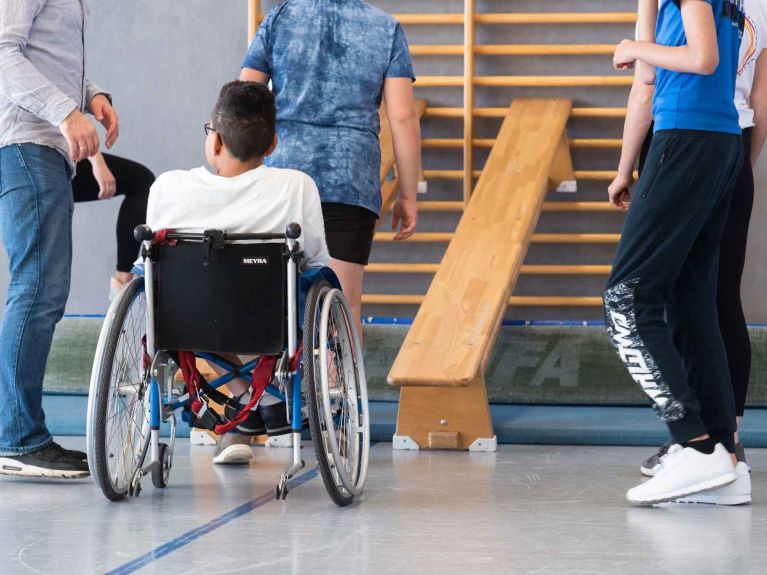
Unesco has paid tribute to the school’s trailblazing role in inclusive education. In 2019, Sabine Kreutzer and her team also won the Jakob Muth Prize for their approach. Jointly awarded by the Bertelsmann Stiftung, the Federal Government and the German Commission for Unesco, the prize honours schools that show especial commitment to inclusion.
Borderless learning
Increasingly, education in Germany is also to take place outside the classroom. “Kultur macht stark. Bündnisse für Bildung” (i.e. Culture Makes You Strong. Alliances for Education), a programme initiated by the Federal Ministry of Education and Research (BMBF), supports non-school projects related to cultural education. For example, youngsters from Idar-Oberstein, a town well-known for its production of precious stones and jewellery, engaged with their region’s artisanal tradition during the course of a one-year creative project. A Munich-based firm came up with a holiday activity they called “Scavenger hunt meets smartphone” in which children discover the creative possibilities offered by digital technology while having fun exploring their local area at the same time.
The Coordination Agency for Training and Migration (KAUSA) focuses on people of migrant origin. This BMBF initiative promotes the dual vocational training of migrants and refugees in companies.
Unesco has found innovative ways to increase inclusion in education in other countries, too. For example, there are competence centres in Cuba, Malawi and Ukraine that give ordinary schools support with teaching children who have special needs. And Gambia, New Zealand and Samoa provide mobile teachers for disadvantaged groups.
